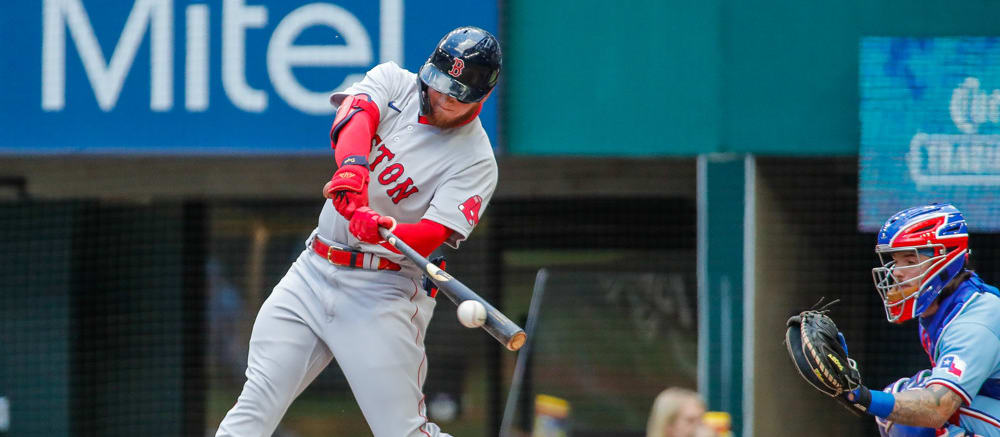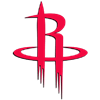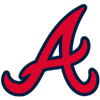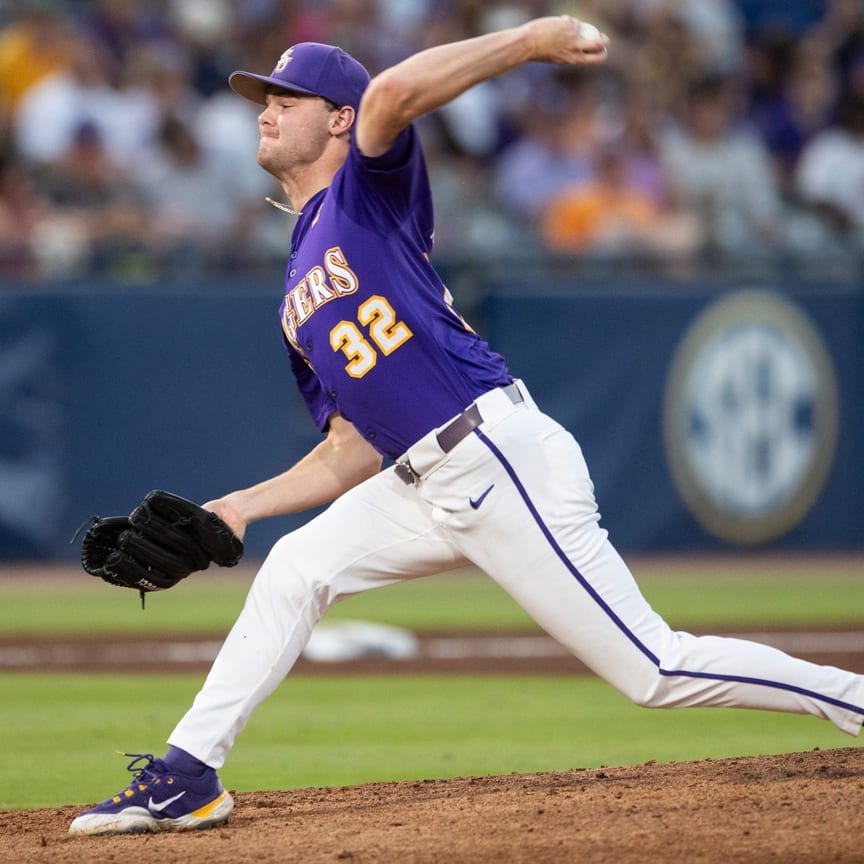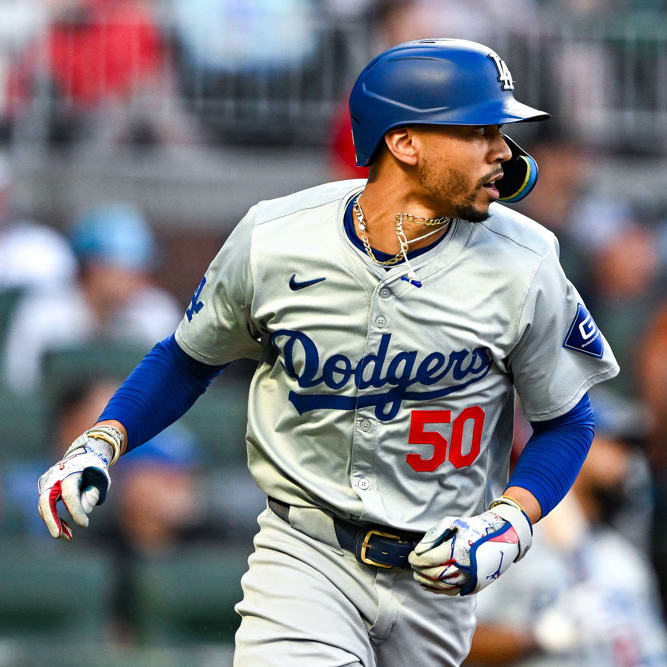I'm back for my second week filling in on the barometer to give Erik a well-deserved break. I drew inspiration from one of his columns from several months ago in which he compared expected stats to players early-season outputs in an attempt to identify future risers and fallers. I'll mostly follow that model in this edition, picking out one (or a few) key stat(s) to make my case for a player's potential skills and production across the final two months of the season.
Risers
Alex Verdugo, Red Sox
Key Stats: .269 batting average vs. .292 xBA; .376 slugging percentage vs. .445 xSLG; .298 wOBA vs. .335 xWOBA
Verdugo has been an expected stats darling all season, so much so that he was also highlighted by Erik a few months ago when he went through a similar exercise. Given that his performance hasn't picked up since, there's reason to be skeptical of Verdugo as a potential riser. Unlike other players who were underperforming their expected metrics nearly across the board -- Christian Walker, Marcell Ozuna and Carlos Santana to name a few -- Verdugo has a balanced profile in terms of GB/FB ratio and avoids a glaring strikeout or infield flyball problem. Instead, he has generally maintained a high batting average with little power production. There's reason to believe that could change.
At a basic level, Verdugo's GB/FB ratio has dropped in each of the last three seasons. He's also shown a discerning eye at the plate, increasing his
I'm back for my second week filling in on the barometer to give Erik a well-deserved break. I drew inspiration from one of his columns from several months ago in which he compared expected stats to players early-season outputs in an attempt to identify future risers and fallers. I'll mostly follow that model in this edition, picking out one (or a few) key stat(s) to make my case for a player's potential skills and production across the final two months of the season.
Risers
Alex Verdugo, Red Sox
Key Stats: .269 batting average vs. .292 xBA; .376 slugging percentage vs. .445 xSLG; .298 wOBA vs. .335 xWOBA
Verdugo has been an expected stats darling all season, so much so that he was also highlighted by Erik a few months ago when he went through a similar exercise. Given that his performance hasn't picked up since, there's reason to be skeptical of Verdugo as a potential riser. Unlike other players who were underperforming their expected metrics nearly across the board -- Christian Walker, Marcell Ozuna and Carlos Santana to name a few -- Verdugo has a balanced profile in terms of GB/FB ratio and avoids a glaring strikeout or infield flyball problem. Instead, he has generally maintained a high batting average with little power production. There's reason to believe that could change.
At a basic level, Verdugo's GB/FB ratio has dropped in each of the last three seasons. He's also shown a discerning eye at the plate, increasing his zone swing percentage in 2022 by 2.6 percent over his career rate. He's paired that gain with a 1.5 percent zone contact rate. In other words, he's gotten more aggressive at the plate but swung at and made contact on pitches with which he should be able to do more damage.
Across 402 plate appearances this season, Verdugo has only six home runs. Per the xHR metric on Statcast, he has deserved between seven to 15 home runs -- depending on his home park. The deficiencies in Verdugo's profile, most specifically his lack of hard contact, ensure that he won't be a true power hitter, but he deserves better than his production to this point.
Josh Rojas, Diamondbacks
Key Stat: .377 xwOBA across his last 100 PA
Through Saturday's games, Rojas had the second highest increase in xwOBA across his last 100 plate appearances. That alone doesn't provide any assurance that he will continue to produce, but he has tailored his contact profile for power in ways that he had not previously. Examples include a career-best 109.1 mph max exit velocity, an increased launch angle (12.9 degrees) and a 39.5 percent hard-hit rate. He's done all of that without sacrificing his plate discipline, as illustrated by a 91st percentile chase rate.
Rojas has spent the majority of his career as a utility player, but he may be doing enough to entice the Diamondbacks to give him a chance to prove he is a viable starter at third base in 2023 and beyond. At his best, Rojas has the chance to be a valuable contributor across many fantasy categories including runs, stolen bases and batting average.
Jose Miranda, Twins
Key Stat: Miranda has a .356 xwOBA across his last 100 plate appearances
Miranda's inclusion admittedly has less to do with Statcast and more to do with his regular role and excellent performance across the last month. In those 100 plate appearances, he's maintained a .340/.392/.574 line to go along with six home runs, 14 runs scored and 23 RBI. Unsurprisingly given those numbers, the team has found a way to fit Miranda into the lineup, starting him eight times at first base, 10 times at third base and three times as designated hitter in the last month while consistently hitting him fifth in the lineup for the past week. With the unfortunate ongoing injury concerns for Alex Kirilloff, the path may only get clearer for Miranda to establish himself as a key member of the Twins' lineup.
Dylan Cease, White Sox
Key Stat: Cease has a 2.68 xERA (91st percentile) and 3.15 SIERA
Only Shohei Ohtani and Clayton Kershaw have maintained better season-long xERA marks than Cease among starts, and his Statcast page is red across the board – excluding walk rate. His results have largely matched that, as he currently ranks fifth among starting pitchers having earned $24. In 11 starts combined between June and July, Cease has maintained a 0.57 ERA, which has been aided by an 88.7 percent left on-base rate. While there will inevitably be pullback from those marks, his expected ERA metrics suggest his fall won't be drastic.
Most convincing has been Cease's dominance with his slider. He has a 24.9 pitch value with the offering, with Max Fried next in line with a value of 9.7. Cease has also fully leaned into the strength of his pitch, as he's thrown his slider more than his fastball the last two months. It's likely not a coincidence that it has overlapped with one of the most dominant stretches for any pitcher of the season.
Devin Williams, Brewers
Key Stat: Williams has a 2.00 xERA.
This space was originally reserved for Luis Garcia, though San Diego's acquisition of Josh Hader obviously changes that calculation. Williams has the sixth-best xERA and elite skills to back it up, highlighted by a 41.8 K percentage and zero home runs allowed this season. His dominance is the reason the Brewers felt comfortable trading Hader, and there isn't likely to be a significant challenge to Williams' new role as Milwaukee's closer before the season ends.
Fallers
Cole Irvin, Athletics
Key Stat: Irvin has a 3.05 ERA and 4.43 xERA
The 1.38 point differential in Irvin's ERA and xERA is the 25th biggest among 368 qualified pitchers. At first glance, it's tempting to believe in what Irvin is doing. He's gone through an extremely difficult stretch of opponents in his last five starts – he's faced Houston three times, Toronto and Texas -- yet has managed to maintain a 1.85 ERA in that span.
With a deeper dive, there's a strong case that trouble is looming. Irvin ranks in the bottom 16th percentile in xSLG, barrel percentage, fastball velocity and K percentage. The case for him is that he's been excellent at home (1.73 ERA in 62.1 innings), which makes sense given the pitcher-friendly nature of the Oakland Coliseum. However, a trade is possible, and even if Irvin remains with the Athletics, his skills are likely to catch up with him at some point prior to the close of the season.
Nelson Cruz, Nationals
Key Stat: .291 xWOBA in his last 100 plate appearances
Perhaps time has finally caught up to Cruz. His profile suggests that he's simply run out of bat speed or strength. While his plate discipline metrics such as zone swing percentage, zone contact percentage, strikeout rate and walk rate have all remained intact, his batted ball skills have cratered. Indicators such as barrel rate, wOBA, ISO and wRC+ have been on a steady, but relatively slow, decline in the last three to four seasons, and that process has sped up in 2022. His barrel rate is at its lowest point in his career by nearly three percentage points. His wOBA is 49 points worse than his previous career low, and his wRC+ is at its lowest point since 2007. His .663 OPS also tells the story on its own.
Kevin Gausman, Blue Jays
Key Stat: In four July starts, opposing hitters have a .550 wOBA against Gausman's fastball
Gausman suffered an ankle injury in his first start of July after taking a line drive off his foot. His fastball velocity has been fine since then, but hitters have done a ton of damage against the pitch. In the first three months of the season, Gausman had served up just one combined home run off of his heater, but he's given up three in July. Hitters have slugged .813 against the pitch and recorded a .502 wOBA in the month.
Unsurprisingly, his results in that span haven't been positive, highlighted by a 5.09 ERA. His skills remain intact (25:4 K:BB), so it's possible that this is just a fluke and a poor stretch, something most pitchers will go through at some point in the season. However, the timing of his injury and poor performance suggests that perhaps Gausman isn't currently pitching at full strength.
Raisel Iglesias, Angels
Key Stat: Iglesias' fastball velocity has fallen roughly 1.5 mph from last season.
Iglesias allowed five earned runs across three appearances from July 6 to July 12. Since, he's turned in five consecutive scoreless outings, which makes it tempting to conclude there's no reason for concern. However, Iglesias' fastball velocity has been inconsistent all season, as has his usage of the pitch. In April, he sat at 94.7 mph with the pitch, before raising that mark to 95.1 and 95.3 in May and June respectively. In July, his velocity has dipped again to 94.5 mph. Even at his top velocity this season, he's been down nearly 1.5 mph from last season. That has led to a 4.04 overall ERA, a decreased strikeout rate (32.9 percent) and increased walk rate (6.2 percent).
As a closer, Iglesias's potential production is closely tied with the success of the team. The Angles finished July 6-18, and without a number of key players in the lineup, their season isn't likely to turn around dramatically. With limited save chances potentially on the way, Iglesias no longer promises to provide elite ratios to go along with the handful of saves he projects to collect in the final few months of the season.
Avisail Garcia, Marlins
Key Stat: Garcia has a launch angle of 2.6 degrees.
Garcia has never been the most consistent performer, though we generally know what we'd get in terms of hard contact rate, strikeout rate and other core skills, such as launch angle. From 2018 to 2021, Garcia posted a launch angle between 8.7 and 9.6 degrees, and his Xstats largely fell in line. This year, that mark has plummeted to 2.6 degrees. The result has been only seven home runs, 15 extra-base hits and a 0.91 ISO across 337 plate appearances.


